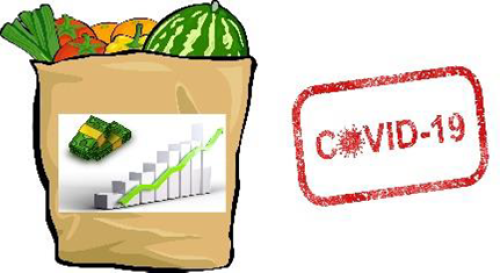
The prolonged Covid-19 pandemic threatens food security and nutrition in low- and middle-income countries:
- The dimension of food security that has been most affected is accessibility, and more specifically the affordability of food
- Covid-19 crisis has exacerbated income and wealth inequalities, and in the poorest countries of the world, the impact of covid-19 on poverty is worsening
- Loss of income combined with higher retail price has disproportionally affected the vulnerable segments of the population, both in rural and urban areas
- Vulnerable households had to cut down the quantity and quality of their food consumption, increasing food insecurity and malnutrition
- Millions of children were unable to access school meals
- Well-functioning social protection programmes can buffer the adverse effects on food insecurity. In low-income countries, 15% of households received cash transfer compared to almost half of the households in upper-middle-income countries
- Short food supply chains and the development of e-commerce increase the resilience of food environments
For information related to the EU global response to support partner countries’ efforts in tackling the Coronavirus pandemic:
| Originally Published | 23 Jan 2024 |
| Knowledge service | Metadata | Global Food and Nutrition Security | COVID-19 and Food and Nutrition Security |
